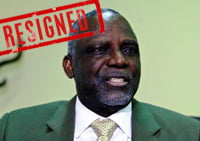Nigeria’s Power Minister Prof. Barth Nnaji has resigned amid corruption allegations although his spokesperson claimed that Nnaji was falsely accused. Bribery is commonplace in the West African country; however, rarely does an accusation bring a resignation.
The major problem in the step down of Nnaji is reassuring investors already present or considering venturing into Nigeria’s power sector. The country is making moves to privatize its power sector, and the former minister is accused of having an interest in a company bidding on a very large electricity contract.
It has also been reported that representatives from UNIDO, the Department for International Development (DFID), European Union (EU), World Bank, African Development Bank (AfDB), UNDP, USAID, and others have expressed concern over the sudden exit of Nnaji. The groups also wanted to be reassured that privatization was still in the process and if the Nigerian government was committed to deadlines. Minister of State for Power Darius Ishaku said in a statement, "Privatization is ongoing with all the timelines. Continue to give us all your usual maximum support as we have no choice but to continue from where [Nnaji] left off."
And recently, Nigeria announced that it established a bilateral partnership with Iran regarding power and distribution, among others. However, this move could prove harmful if US and EU sanctions venture into other Iranian export sectors (currently sanctions are only focused on embargoes on Iranian oil shipments). If this occurs, funding from the EU, all US organizations including the US ExIm Bank as well as UN programs could be in jeopardy.
Alternative Energy Africa is trying to reduce its own carbon footprint. Ask about our electronic subscriptions

